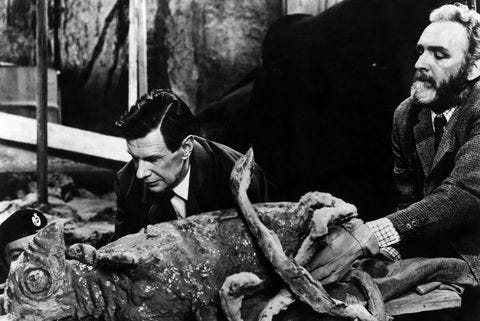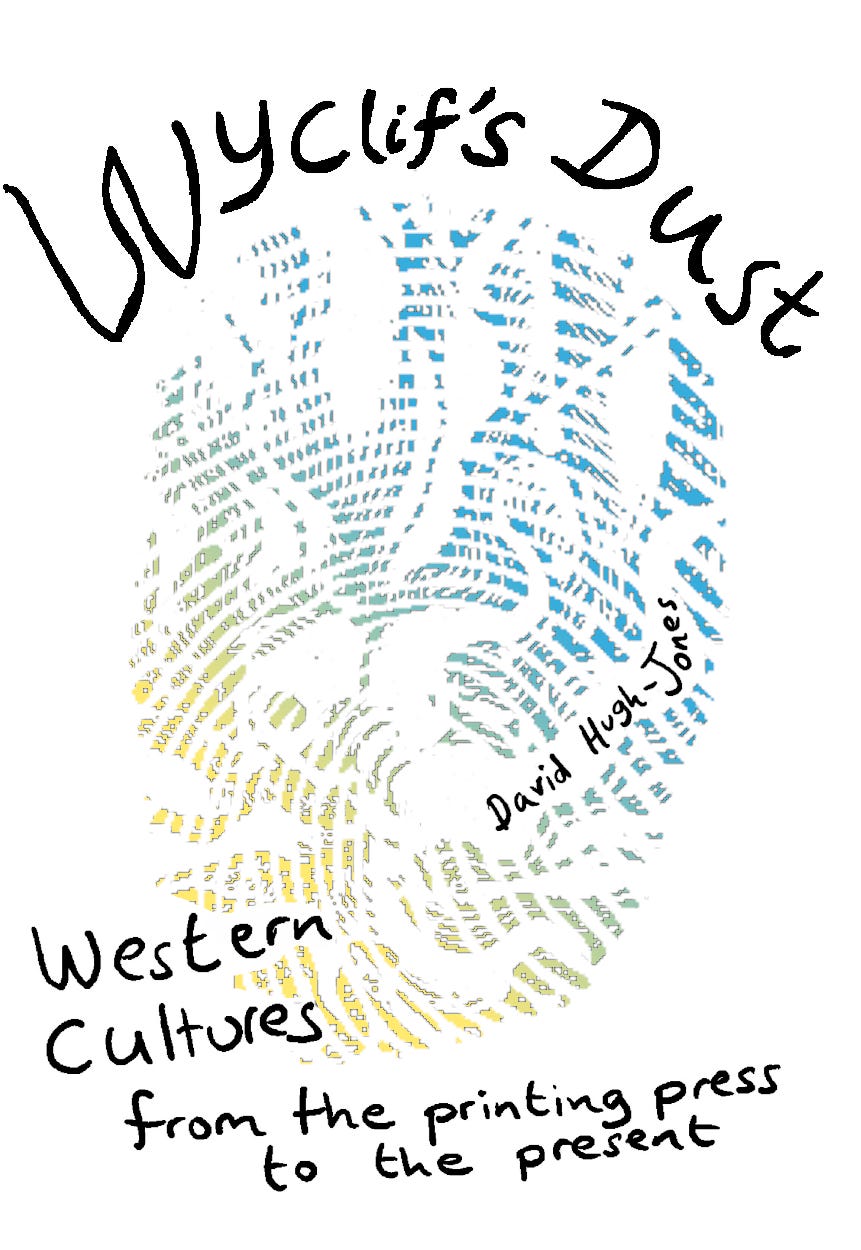Full title: The Rise and Fall of the British Nation: A Twentieth-Century History by David Edgerton. That got me interested, and simultaneously I expected to be annoyed. My first reaction was “why would you think the British nation rose in the twentieth century (and not much earlier)?” So I was looking for something controversial and conceptual, focused on reinterpreting the idea of Britishness.
This book isn’t that. It does take sides in plenty of controversies, but it is fundamentally an economics-focused history covering all of twentieth-century Britain. It’s descriptive and sweeping, a narrative more than an argument, although the narrative engages with many arguments along its way. Also I say economics-focused, not economic. It goes into economic topics like trade, industry and innovation, but there’s no real framework of modern economics here. (There is a framework in some sense, but it’s probably more from Marxist political economy, which is mostly studied outside economics departments; I won’t say more about it, because I don’t understand it well enough to comment.)
The key argument (I think!) is that British politics can be thought of on the nationalist-internationalist dimension rather than solely on the left-right dimension. On this account, the Empire before World War Two is internationalist — sometimes even multiculti — not nationalist, and the “rise of the British nation” takes place after WWII and goes on till the 1970s. The “neoliberal” era, a term Edgerton dislikes, also gets reinterpreted, with Thatcherism as a right-wing attempt to renew the nation, which fails and leads instead to an internationalist era of consensus. Here’s his punchiest statement:
The national moment was the time of what might be called a developmental state, one of many features of the nation which have been supposed not to exist (among the others in older accounts are militarism and technocracy). This was the time and not the nineteenth century) when the United Kingdom was at its most industrial. It was also the moment when it was refashioned by the state to look much more like its continental neighbours, with conscription and development of national agriculture, and protected industry. Ideologically it generated national rather than imperial histories, a nationalist critique of cosmopolitan capitalism and a powerfully nationalist declinism. Thinking of this period in this way is a more explanatory alternative than the common references to Keynesianism, the welfare state, decline, social democracy and consensus. It allows us to rethink the politics of the Labour Party, which I see as much more national productionist than welfarist after I945. It also allows us to rethink the story of racism and immigration, and of emigration. It also points to the need to think of foreign policy in new ways, from the Suez invasion to going into the Common Market. I see the former as a national not an imperial war, and entry to the EEC not as moving from liberalism and empire to protectionism and subsidy, but from economic nationalism to a European economic liberalism.
A contemporary background to this argument might be the rise of the open-closed dimension in international politics, most famously described by The Economist, and the way UK and US political parties have been shifting about the twin open/closed, left/right axes. An academic background might be Ronald Rogowski’s 1980s political science book Commerce and Coalitions, which argues that pro- and anti-free-trade is a recurring dimension in politics, structured by the perceived benefits of openness to different groups. When capital is relatively scarce in a country, capitalists dislike international trade because it’ll lower their profits; when labour is scarce, then workers dislike trade; the owners of abundant factors like trade for the opposite reason, that they can sell what they’ve got on the world markets.
On the way, you get a lot of the historical detail I wrote about last time — the fodder for your personal pattern-matching apparatus. The building of the Aswan dam “at the cost of a dreadnought” in 1902. Sir Frank Hornby, millionaire Tory MP and inventor of Meccano. This extraordinary picture of an Indian soldier arriving in Singapore in the war:
Or more recently the invention of the fuel cell by F. T. Bacon (Eton and Trinity). In particular I learnt a lot about the international, globalized, capitalist side of the twentieth-century Empire, and the links between the capitalist class and politics. This is a big shift from the early nineteenth century, when landowners still held the reins.
Takedowns
You also get plenty of takedowns of received wisdom, though sometimes it seems to be received wisdom among historians, which others won’t necessarily know about. My first reaction to the hypothesis above is “sure, post-WWII politics was nationalist in some sense — like, it nationalized things — but it didn’t work very well”. I think Edgerton thinks it did work pretty well, but he is nuanced about the pluses and minuses. That’s the benefit from the historical approach, where you don’t have to turn all your data into a crucial test of a hypothesis.
Some takedowns convinced me more than others. Against narratives of decline, he sometimes seems to want to use measures of absolute growth. But declinism was always about relative decline. Or when the book praises post-war growth rates: yeah, sure, they were good, but they were good everywhere and not especially good in Britain, right? (Put nerdily, this is my point from last time about including dummy variables for time in your regression.) And weren’t they good partly because the world was bouncing back from wartime destruction, within the quite workable Bretton Woods framework of fixed exchange rates?
Some points I thought were tendentious. Did the Conservatives in 1979 inherit a “modern electricity supply, railway, telephone, gas, postal and other systems”? I guess it depends what you mean by modern, like if you mean “absolutely sucks, you make a phone call using a rotary dial or by literally talking to the operator, there are regular electricity blackouts, the trains are rare, slow, dirty and late” then sure. “Drugs and criminality were very much more significant in the late 1980s and 1990s than during the supposedly lax and permissive 1960s and 1970s” omits that drugs and criminality very clearly started rising by the 1960s, and continued through the 1970s. Just as with GDP, levels don’t tell you much without a model of the growth process. (By the way, this is why acoup.blog’s accusation of “empiricism” against social science is wildly off. Social scientists are the ones who know that data offers “no free lunch” of conclusions without assumptions!)

Quatermassian technocrats
The discussion of technocracy was interesting. I don’t think it kills the idea that Britain failed in innovations — AGR nuclear reactors and Concorde are egregious examples, and then there’s Ardil, the peanut-based wool substitute for which I have now developed a weird obsession. But it very effectively paints a picture of this forgotten world of Quatermassian technobureaucrats.
Barnes Wallis, one of the most celebrated wartime inventors, went around complaining of the failure of the government to support his swing-wing wing aircraft, the Swallow. For a decade he toured the public schools with a lecture on “The Strength of England”, advocating the building of short-take-off airliners and nuclear-powered merchant submarines — between them these distinctly British and un-American machines would put the United Kingdom back at the centre of the world.
… for years the idea that British machines, whether the hovercraft or new kinds of nuclear reactor, would lead to successful exports was a central propagandistic notion. To be against these developments was to be against exports! But the exports never came – no large hovercraft, no AGR, no Concorde was ever sold abroad….
Hovercraft 😢.
Side anecdote: my father, educated at Eton in the early 50s, said he spent almost all of his time there learning Greek and Latin. And there’s the Oxford don’s wife who told Frederick Lindemann “anyone who has a first in Greats [classics] could get up science in a fortnight”.
Advertising break: my book Wyclif’s Dust: Western Cultures from the Printing Press to the Present is available from Amazon as a paperback/hardback/ebook. You can read more about it here.
You can also subscribe to this newsletter (it’s free):
Or share this post on social media:
Digression: does history writing get better?
Some people — I think for example Mary Beard — deny that there’s progress in the writing of history. That seems too extreme. Over time historians find evidence that previous generations lacked: The Noble Revolt, a recent history of the start of the English Civil War, depends on handwritten correspondence between the Earl of Warwick and his conspirators. But there’s not really technical progress in how history is done. There’s no science of history waiting to be discovered. So as time goes on, there are gains as well as losses. When the generation that experiences events passes, a lot is lost — in fact, everything that hasn’t been recorded, deliberately or otherwise: conversations, experiences, much of what we summarize as “what it was like”. And our intuitions get more misleading. A seventeenth-century person had some intuitive knowledge of what a city or a household was. Our intuitions are the wrong ones, based on 21st-century cities and households which are different. Progress in history is like looking back after a hike from lowlands into mountains: you have gained perspective, but you’ve lost the intimate feel and texture of where you were. Higher but dryer.
Another thing is that historians have interests. Corelli Barnet has a point to make when he writes The Audit of War; David Edgerton has a point to make when he writes Rise And Fall. A pessimistic view of history writing is that over time, narrative control passes into the hands of those with the biggest axes to grind. Most people no longer care about the 1980s, but the few who really care select into writing history books about it. Of course one hopes that in the long run, some balance and distance is found. That’s why it’s good for historians to have, if I can say this, a disinterested interest in their period. They should find it charming or curious on its own terms.
Potatoes to pasta
My favourite part of the post-war chapters was the discussion of the changes in and after the 1980s. It has this quality of judiciousness:
… there was a continentalization of British food tastes. With imported Mediterranean foods, from citrus to tomatoes to avocados, aubergines and courgettes, the British diet became varied and interesting. Tea consumption fell, while coffee increased, beer gave way to wine, potatoes to pasta. Where bottled mineral water had once been rare, in a country with good drinking water, pointless French and Italian mineral waters were now everywhere.
For real. It’s hard to imagine that in the 1960s, when a guy on a sitcom gets a free delivery of rice from the supermarket, it’s delivered by mysterious Orientals in full traditional dress:
And the underlying thesis here rings true to me, i.e. I pattern-match on it:
Whatever it did, the programme of Thatcher, Major and Blair did not revive a decaying British national capitalism, but rather brought the benefits of international capitalism to the United Kingdom.
That seems relevant to our current economic predicament.
The last chapter on the Blair era feels more angry, and I am not sure that history since the book’s publication has been kind to its concerns. Privatized care homes get mentioned; in the pandemic, it was the NHS that harmed these by shipping out ill patients to them. The nuclear versus coal debate seems to have a clear answer in the face of global warming and Putin. The ignominious exit from Afghanistan has revealed that many people there benefited from our presence, and suffered when we fled. A defence capability separate from the US no longer looks so quixotic.
What about the overall thesis, that Britain as a nation only rose in the post-war period, and that before the rulers were international capitalists (but international in the framework of the British empire?) That chimes with the argument, made by Jonathan Rose among others, that most people in imperial Britain were quite ignorant about the Empire, and imperialist jingoism was an elite project. To think about this, you really need a theory of nations and nationalism. I’ll write more on that soon.








Great review. I find nonfiction books with titles like these, which make a claim that is either hedged about in the book itself, or is only defended on the basis of idiosyncratic definitions of words in the title, irritating.
It also makes you wonder whether the book is worth reading; if the author is prepared to use a deliberately misleading title to aid sales, what other, less obtrusive compromises with regards to accuracy have been made? Though I'm sure publishers often leave authors with little choice.
See also Why The Germans Do It Better (the author believes that they often don't), and The Sleepwalkers (the author does not believe that German decision makers sleepwalked into WWI).